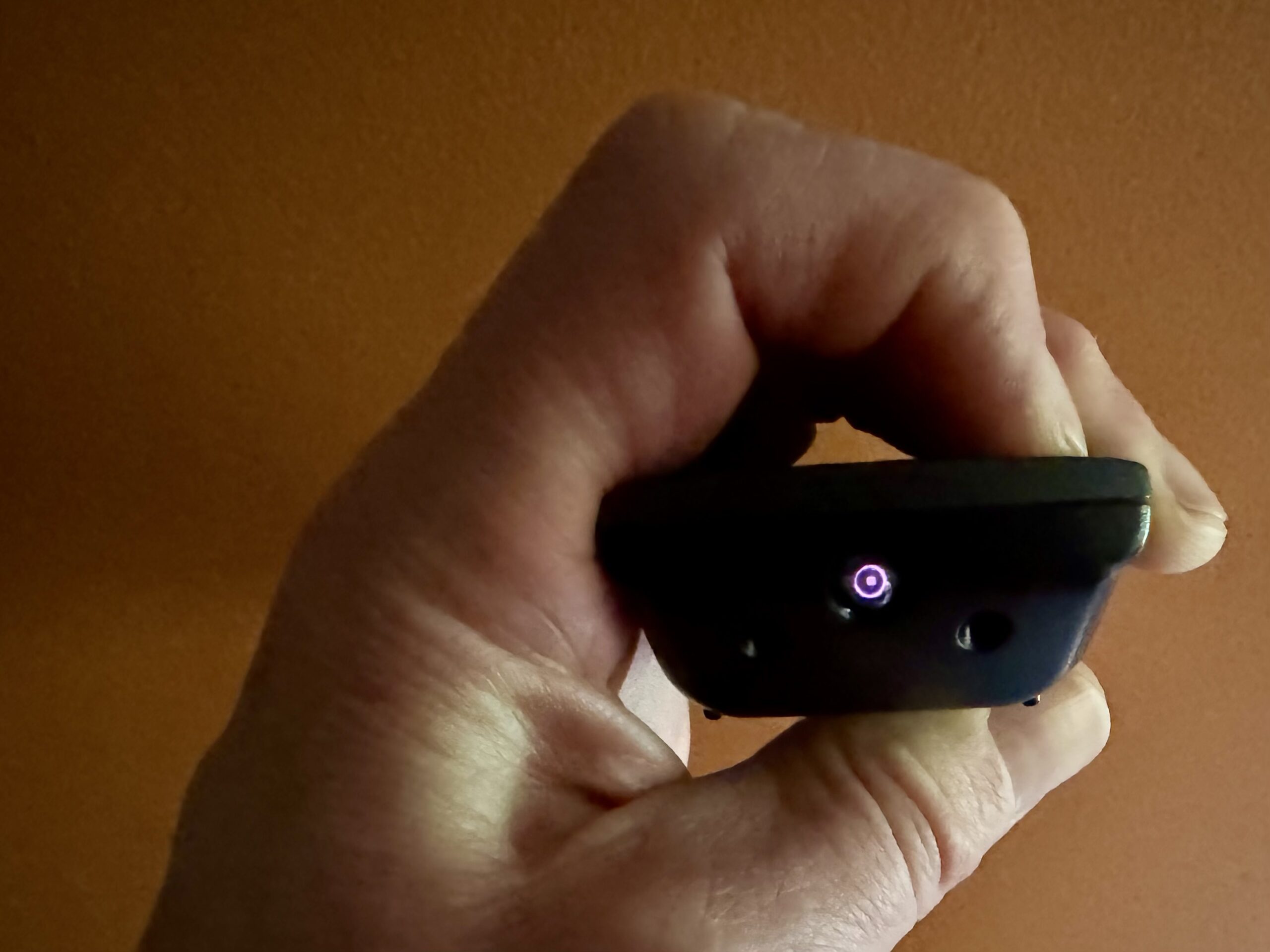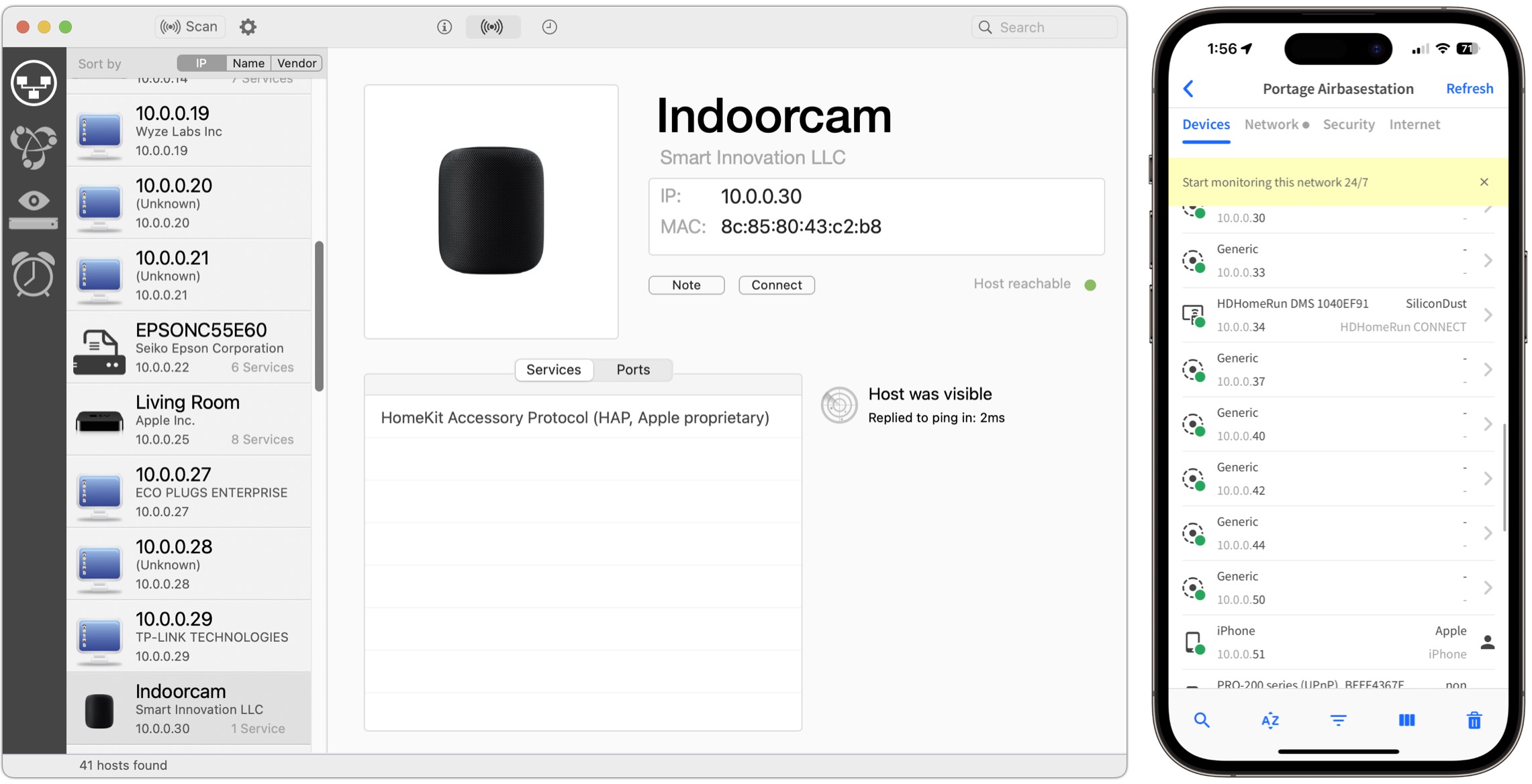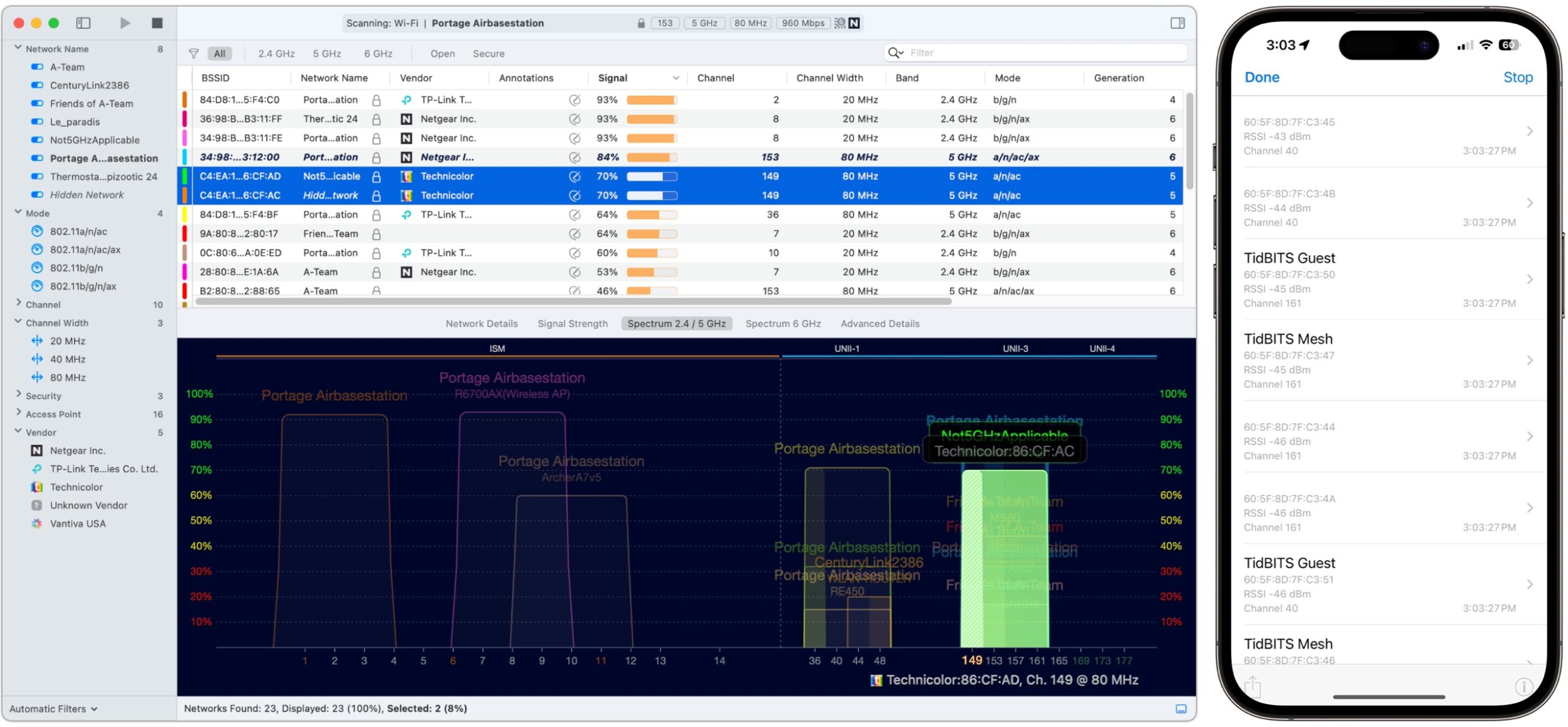Find Hidden Cameras While Traveling
Earlier this year, Airbnb announced a policy change that bans cameras inside properties listed by their hosts. If you haven’t used Airbnb or read the fine print on its policies, you might have thought, “What the blank! Airbnb hosts could snoop on their guests?!”
Sort of. Airbnb’s previous policy allowed indoor cameras only in a rental’s public spaces (such as a living room or front hallway) and only when disclosed. In 2018, the company went a step further by requiring hosts to detail camera locations and where they were pointed, and by making guests acknowledge that they had seen the information by confirming via a popup dialog when booking. Apparently, that wasn’t enough: as of 1 May 2024, Airbnb joined competitor VRBO in a total ban on indoor cameras.
What prompted this ban? Airbnb didn’t say, and no reporting on the policy revision suggested a specific reason. The company’s statement says: “The update to this policy simplifies our approach and makes clear that security cameras are not allowed inside listings, regardless of their location, purpose or prior disclosure.”
Reading between the lines, I expect Airbnb may be reacting in part to the widespread availability and easy deployment of tiny, nearly invisible cameras hidden in ordinary objects you’d expect to find in a home or rental. Such objects include smoke detectors, USB power adapters, AC outlets, clock radios, tissue-box holders, appliances, and all manner of other things. As you can see by those links, they’re readily available from major online retailers.
From a host’s standpoint, I understand the temptation to want a hidden camera for peace of mind about the misuse of a rental. Short-term renters may bring in more people than allowed by the agreement, stage parties, or trash the place. Yet the expectation of privacy and legal protections should be paramount, and hosts should understand that. Disclosed cameras are still allowed outside, so a host could have cameras capturing entry points if they were really concerned. Indoor decibel meters that don’t record conversations are also allowed in shared spaces if disclosed.
Hidden cameras are installed in lots of non-rental scenarios, of course. Though it’s impossible to know for sure, the majority—maybe the vast majority—are likely deployed to watch household employees or contractors, like nannies or tradespeople. But some significant subset is for prurient and exploitative purposes. The very ugliness of the subterfuge of the disguises used for routine devices found in bedrooms and bathrooms makes that clear. It’s always wrong and often criminal. Sometimes such hidden cameras are used in unexpectedly terrible ways.
By having a total ban on indoor cameras, Airbnb makes it easier for savvy travelers to examine their surroundings and report a host (and get a refund, with hotel nights picked up by Airbnb) for violations. Airbnb policy has always said, “Intentionally concealed recording devices (such as hidden security cameras) are never permitted,” but with cameras allowed in some spaces and not others, there could have been gray areas.
Even if you never use Airbnb, VRBO, or similar non-hospitality industry rooms, be aware that hidden cameras have also been found in hotel rooms, cruise ships, public facilities, and elsewhere. Without encouraging paranoia, it’s worth being aware of the potential for privacy invasions. A particularly egregious case last year involved a flight attendant allegedly taping a poorly hidden iPhone to a toilet seat; most hidden cameras are far better obscured.
You aren’t helpless in the face (or lens) of technology. If you want to check for hidden cameras, try these techniques:
- Examine anything with a reflective glass or plastic cover or with holes, such as the front screen of an alarm clock or a smoke detector. Can you spot a camera lens? Point a phone flashlight to see if it reveals a telltale reflection.
- Make the room dark by turning off all the lights. Some cameras produce visible lights.
- With the lights off, open the Camera app on your iPhone and scan the room through the viewfinder to see if you can spot an infrared or “night-vision” LED, a common attribute of spycams to improve low-light recording. To test if your iPhone’s front- or rear-facing cameras can detect infrared light in a dim room, point an infrared TV or stereo remote at the iPhone while pressing buttons.

- While connected to a rental or hotel Wi-Fi network, use a passive network scanner to look for cameras. This technique is far from guaranteed, but it may reveal networked cameras. I have three cameras on my home network (one outside and two inside pointing out), and the $29.99 iNet Network Scanner for macOS identifies two of them using its database of devices. The $9.99 version of iNet Network Scanner for iOS produced slightly different results. Many people recommend Fing, a multi-platform scanner with an iOS version. When I tried Fing’s free tier, it didn’t provide sufficient identifying details about my cameras.

iNet Network Scanner showing cameras (left), Fing not identifying them (right) - Some security experts think if you’ve gone as far as the previous step, you should also scan for additional telltale Wi-Fi networks that spycams might be connected to. There’s evidence that poorly designed camera hardware may continuously broadcast a revealing Wi-Fi network name that should be present only during setup—those network names may be a jumble of hexadecimal but can also be as obvious as starting with “IPCam.” To find such networks, use a Wi-Fi scanning app that displays signal strength: a strong signal emanating from an otherwise innocuous object could indicate a hidden camera. On a Mac, turn to the $19.95 WiFi Explorer (which has a 3-day free trial and is also available in Setapp) for a thorough snapshot. In iOS, Apple prevents third-party apps from revealing diagnostic Wi-Fi network information, but its outdated AirPort Utility app has a scanning mode that still works in iOS 17. Download AirPort Utility and turn on Settings > AirPort Utility > Wi-Fi Scanner. Then, in AirPort Utility, tap Wi-Fi Scan in the upper-right corner and tap Scan. A lower RRSI number indicates a stronger network signal—that is, -39 dBm is stronger than -56 dBm (closer to 0).

WiFi Explorer (left) and AirPort Utility (right) can both sort by signal strength and reveal Wi-Fi networks that don’t broadcast a network name. - If you have a personal or professional need for more thorough checking—you’re being stalked, are a political protester, or are famous—you can purchase specialty devices that range from $21 to $500 that can help pinpoint wireless transmissions, as all these hidden cameras send data wirelessly.
The scourge isn’t hidden cameras. It’s human beings. While Airbnb’s move won’t prevent people from doing creepy things, it draws a line in the sand for acceptable behavior and clarifies that cameras may only be used outside.
Don’t take this article as encouraging paranoia—it’s unlikely that any given rented room or house would contain prurient hidden cameras. But if you have reason to be concerned or want extra peace of mind, you now have a handful of ways to identify such devices.
There are a number of “Glint” detectors for iPhone on the iOS App Store. These apps look for the reflections off the spy-cam’s lenses.
I just looked through apps and reviews. Of the top dozens of results, I didn’t find any with reviews; many are made in China; the UI looks very similar. I would be very dubious about such an app. Really, you just need to use your eyes. I’m not sure what an app would do that your eyes aren’t better at.
Here in Arizona, some local cities are making owners of properties they list on Airbnb responsible, both financially and criminally, for incidents at their properties. It looks like Airbnb has made it impossible for these owners to monitor their properties as required by local authorities.
Thanks @glennf for this, a timely reminder for this time of year.
Well, it’s tricky, isn’t it? I believe there are also a lot of local and state privacy laws that forbid cameras in rentals. Airbnb might have had a patchwork of policies and decided to coordinate them. But I don’t think you need indoor cameras to monitor. Outdoor cameras, having the host meet guests, and decibel meters, as well as being a good neighbor so that people know how to reach a host (or company) about problems helps, right?
But that is the devil’s deal with Airbnb. How many hosts hide from neighbors or are a few layers away, owner from management company from contract employee who meets guests? We rented a place in London in a suburb (near Greenwich), and it seemed on the up and up. However, a neighbor spotted us going in, and without any hostility asked if it was an Airbnb. I said yes—was it legal? She said, no. Not only was it an illegal sublet, it was constantly full of noisy people. As a semi-detached home—sharing a wall with the next house—the neighbor said the elderly woman who lived there had been tortured by all the tumult. We felt bad about it, but assured the neighbor we were a quiet family. She gave us no personal guff.
Because I had that second hand and no real information, I didn’t report the property. However, we had a lot of annoyances—lots of things were slightly broken or off-kilter, though nothing was truly unworkable—and so I told the “host” that I would not leave a review because I couldn’t recommend it. She was nice about it, as I could have reported them.
There are a lot of places that have made videoing acts where there was a reasonable expectation of privacy. What that means is that if a tenant finds some hardware, realises that they have been videoed doing something, they can call the police and if the police find a recording then the owner has committed a crime and the penalties can be severe.
From the article: “Sometimes such hidden cameras are used in unexpectedly terrible ways.”
The referenced article does not seem to mention hidden cameras, and the accompanying photos appear to be from an external entry cam. At minimum, I would say that the use of the word ‘hidden’ is gratuitous here.
"I went into the bathroom and took off the toilet paper roll and replaced it with a fresh one. Luckily, it was almost empty already. I unrolled the rest of the paper and dug through my parts box until I found a little plastic envelope full of ultrabright white LEDs I’d scavenged out of a dead bike lamp. I punched their leads through the cardboard tube carefully, using a pin to make the holes, then got out some wire and connected them all in series with little metal clips. I twisted the wires into the leads for a nine-volt battery and connected the battery. Now I had a tube ringed with ultrabright, directional LEDs, and I could hold it up to my eye and look through it.
I’d built one of these last year as a science fair project and had been thrown out of the fair once I showed that there were hidden cameras in half the classrooms at Chavez High. Pinhead video cameras cost less than a good restaurant dinner these days, so they’re showing up everywhere. Sneaky store clerks put them in changing rooms or tanning salons and get pervy with the hidden footage they get from their customers—sometimes they just put it on the net. Knowing how to turn a toilet paper roll and three bucks’ worth of parts into a camera-detector is just good sense.
This is the simplest way to catch a spy-cam. They have tiny lenses, but they reflect light like the dickens. It works best in a dim room: stare through the tube and slowly scan all the walls and other places someone might have put a camera until you see the glint of a reflection. If the reflection stays still as you move around, that’s a lens."
Doctorow, Cory. “Little Brother” (p. 77). Macmillan. Kindle Edition.
The lawsuit calls the photos “illicit,” so whatever it looks like, there’s a dispute over whether the footage is legitimate or legal. Feels like a quibble since we don’t know the facts, but the facts of the lawsuit were reported.
I do not understand your reluctance to even leave an unfavorable review, much less reporting the property. . . Future renters will likely wind up suffering through “lots of annoyances” while on vacation and neighbors will keep dealing with all of the problems caused by the admittedly illegal sublet.
I doubt that the non-hostile neighbor was being untruthful. If I required corroboration, I would have contacted the elderly next door neighbor. . . Technically my next door neighbor, at least for the duration of my stay. It would give us an opportunity to meet and give her our contact info in case she needed to use it.
In the early 2000s we availed ourselves of some rentals using VRBO in Europe. It was before the home rental industry had taken-off; AirBNB was just getting started. We really enjoyed staying in flats and houses in different neighborhoods. Previously we would stay in small locally-owned hotels/inns where the proprietors lived on the premises. However, as the problems associated with tourist rentals escalated, we decided to go back to the small hotels located in neighborhoods away from tourist centers.
Felt complicated. Without having all the details (like a lease and knowing local rental rules), I was relying on someone’s else opinion. She seemed very nice and was concerned about her neighbor’s well-being. I gave her all the information I had, and was very friendly about it.
Interesting thing about reviews on Airbnb: the property was seemingly newly listed. I found it on a few rental services, and the few reviews seemed fine, and we knew that part of town (friends lived about four blocks away, which was great).
Technically, everything that we needed resolved was, and I didn’t feel justified in doing a deep dive into what was going on. I thought quite a bit about it. It turns out, though, that Airbnb won’t show all a property’s ratings until it has a minimum number, which makes it less rentable. By not reviewing, that was a ding against them. The place was affordable for what it was in the high season in London, too, a block from a train station.
Well, I don’t know if you’re in a position to make that judgement call; I did believe her, but perhaps she disagreed with rules and was making a statement based on her interpretation. I’m not a real-estate or rental attorney. I didn’t feel like bothering the neighbor, who I never saw and who had apparently already been bothered quite a bit.
In the end, it’s played out exactly as expected: the property is no longer listed. I expect not long after last summer, neighbors took action, and the sub-lessor was booted.
I have a camera inside my house which I occasionally rent out on Airbnb when I am not home. I tell guests that there is a camera and that they should simply unplug it when they enter the house. Not sure if this is ok with Airbnb’s policy but the camera is certainly not hidden and I am fully transparent about it. But I also like to know when strangers (a.k.a. Airbnb guests) enter my house (or someone unwanted, which is the main reason for the camera).
It is not and you should consult the hosting rules. If someone comes into your rental, finds the camera, which is now not allowed of Airbnb rules, they can complain to Airbnb, which will reverse the charges, charge you a penalty, cancel your Airbnb hosting account probably, and make you pay for accommodations for the person who can’t stay at your house because of the camera.
Interesting piece, Glenn.
As a Londoner, most housing in this town is slightly broken or off-kilter while not being unworkable. Lol!
…we pretty much expect it when renting or buying anything here these days, haha!
Soundproofing…what’s that, never heard of it? But I have heard all of my neighbours being intimate. Just putting that out there.
Did you hear about…this story…? Neighbour installed mannequin to stare at home after row, claim couple | Evening Standard
More amazing, I know one of them (the victims, not the perpetrator)
Haha, that sounds about right. Endless multi-year-long continual disputes over some planning issue or another.
Especially with some people having seemingly bottomless pockets to make trouble on their street when they don’t get what they want. This story comes to mind…
With the ‘calmest person quote of the day’ going to this neighbour…
“Neither my wife nor myself were particularly amused by it. Everyone I know is disappointed that this has happened. I know no one that likes it and it doesn’t enhance the area.”
‘Doesn’t enhance the area’… captain obvious, for the win!